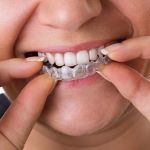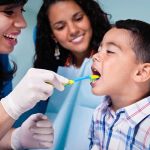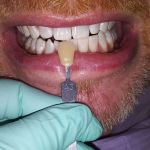Types of Dental Cleanings
There are several types of dental cleanings, each tailored to meet specific oral health needs. The most common is the prophylaxis, a routine preventive cleaning suitable for those with generally healthy teeth and gums. For individuals who haven't visited the dentist in a long time or have extensive plaque buildup, a gross debridement might be recommended. This procedure is similar to prophylaxis but may take longer as it aims to identify any underlying issues that weren't initially diagnosed. Another type, scaling and root planing, is a deep cleaning that reaches beneath the gum line to remove bacteria and tartar, typically reserved for those with mild to moderate gum disease. During this procedure, local anesthesia is often administered to numb the gums.
How Often Should You Get a Dental Cleaning?
The American Dental Association suggests that most people should schedule teeth cleanings every six months. However, the frequency can vary depending on individual oral health circumstances. Those prone to cavities or gum disease might need more frequent visits. Regular dental X-rays are also an important part of the diagnostic process, with the interval depending on specific needs and any ongoing issues.
Risks and Benefits of Dental Cleanings
Regular dental cleanings offer numerous benefits, including reduced risk of cavities and gum disease, improved overall health as there is a link between oral and systemic health, elimination of bad breath, and prevention of problems before they arise, saving time and money in the long run. While dental cleanings are safe and effective, some people might experience temporary side effects like teeth sensitivity or sore gums, which can usually be managed with over-the-counter pain relievers and resolve within a few days.
Recovery and Outlook
Dental cleanings are highly valuable for oral healthcare. They are more cost-effective than restorative treatments and significantly reduce the risk of common oral health issues. It's essential to have routine cleanings and also consult the dentist promptly if any new or concerning symptoms arise, such as a toothache, bleeding gums, loose teeth, or other problems. The earlier treatment is initiated, the better the chances of maintaining good oral health.
Who Needs More Frequent Dental Cleanings?
Not everyone requires the standard six-month interval for dental cleanings. People with gum disease, a family history of plaque build-up or cavities, a weakened immune system, or those dealing with other illnesses or significant stress might need more frequent visits. It's advisable to consult with your dentist to determine the ideal frequency for your specific situation.
The Importance of Dental Cleanings
Routine dental cleanings are indispensable for maintaining optimal oral health. They remove debris, plaque, tartar, and biofilm that cannot be eliminated through brushing and flossing alone. Just like washing a car requires more than a hose spray to get rid of all dirt, professional dental cleanings address what remains after at-home hygiene efforts. A combination of good home care and regular professional cleanings is essential for a healthy mouth.
In summary, dental cleanings are a vital component of oral health maintenance. They prevent tooth diseases, improve overall health, and are a cost-effective investment in your well-being. Whether it's the removal of plaque and tartar, early detection of problems, or the application of preventive treatments like fluoride, these procedures contribute significantly to keeping your smile healthy and bright. Regular visits to the dentist for cleanings and exams are not only recommended but essential for a lifetime of good oral health.






 Gentle Dental Service4.0 (113 review)
Gentle Dental Service4.0 (113 review) All Family Dental and Braces4.0 (689 review)
All Family Dental and Braces4.0 (689 review) Dentists of South Pasadena4.0 (124 review)
Dentists of South Pasadena4.0 (124 review) Shoreline Endodontics LLC4.0 (10 review)
Shoreline Endodontics LLC4.0 (10 review) Tend East Nashville4.0 (319 review)
Tend East Nashville4.0 (319 review) Promenade Dental Care4.0 (69 review)
Promenade Dental Care4.0 (69 review) The Importance of Oral Health Education During Pregnancy for a Healthy Pregnancy
The Importance of Oral Health Education During Pregnancy for a Healthy Pregnancy Best Tips for Brushing Your Teeth Properly for Healthy Gums: Essential Techniques for Oral Health
Best Tips for Brushing Your Teeth Properly for Healthy Gums: Essential Techniques for Oral Health Why Skipping Dental Checkups Can Lead to Bigger Oral Health Problems
Why Skipping Dental Checkups Can Lead to Bigger Oral Health Problems Advantages of Porcelain Dental Restorations
Advantages of Porcelain Dental Restorations How Can Diabetes Cause Tooth and Gum Problems? Preventing and Managing Oral Health Issues
How Can Diabetes Cause Tooth and Gum Problems? Preventing and Managing Oral Health Issues Healthy Habits for Promoting Good Oral Health and Hygiene: Tips for a Healthy Smile
Healthy Habits for Promoting Good Oral Health and Hygiene: Tips for a Healthy Smile